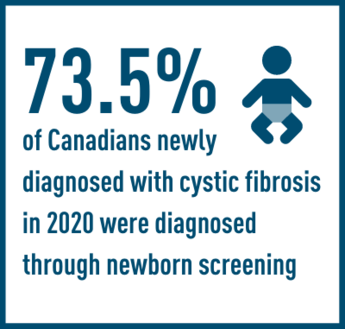Join us for the CF Canada Community Forum: "Uncharted Territories," taking place on April 26 from 4 PM to 5 PM EST or 1 PM to 2 PM PST.
Read MoreThe Canadian Burkholderia Cepacia Complex Research and Referral Repository (CBCCRRR)
The Canadian Burkholderia cepacia Complex Research and Referral Repository (CBCCRRR) serves as a Cystic Fibrosis Canada-funded core facility to the CF clinical and research communities across the country. Located in the lab of Dr. David Speert at the University of British Columbia, the Repository has been working with Canadian clinics since 1994 and has been funded by Cystic Fibrosis Canada since 2001. Dr. Speert is Founder and Director of the Repository as well as co-founder of the International B. cepacia Working Group.
The Burkholderia cepacia complex (BCC) consists of at least 18 closely related, but distinct, species of bacteria. In 2013, 4.4% of all individuals in the Canadian CF Patient Registry were reported to be infected with BCC. These pathogens are particularly concerning for individuals with CF because they may cause serious pulmonary infections and tend to be difficult to treat due to their resistance to many antibiotics. The potential for spread between CF patients is also of prime concern.
Different species in the complex demonstrate variable severity and clinical outcomes; therefore, when an individual is infected with BCC, identification of the specific bacterial species is important in order to guide appropriate therapy. Knowledge of the species and strain is also essential for tracking the spread of infection among CF patients. For example, identification of the same strain of BCC in several patients at a clinic may indicate transfer between patients. However, BCC are often difficult to differentiate from one another and require sophisticated biochemical and molecular analyses to distinguish between the various species or strains within a given species.
The CBCCRRR offers expert BCC species identification and strain typing services to all CF clinics across the country. As more CF clinics in Canada use the resource regularly to identify BCC in their patient populations, the CBCCRRR will be well-positioned as a national resource to recognize shifts in the prevalence of BCC infections and to alert clinics of possible outbreaks so that swift action may be taken.
In addition to its roles in the clinical setting, the Repository serves an important function for the CF research community by archiving BCC isolates obtained from CF patients. To date, the Repository has collected 2,500 isolates, all of which have been de-identified to protect patient information. CF researchers may request these isolates for studies to gain a better understanding of BCC infection and to investigate potential treatments. To learn more about the facility and its services, please visit the CBCCRRR website.



